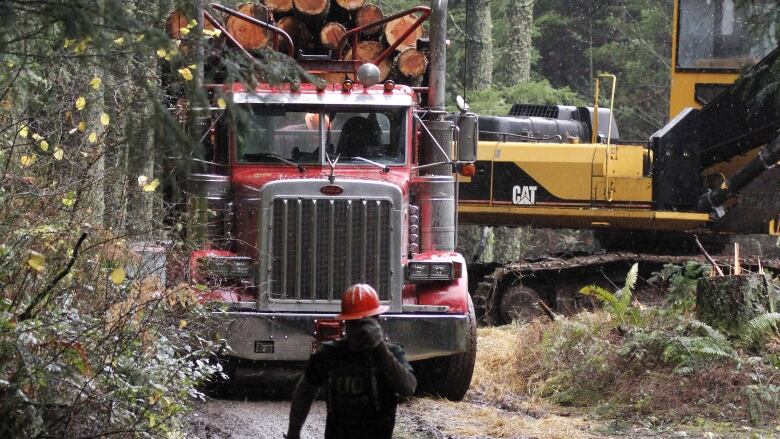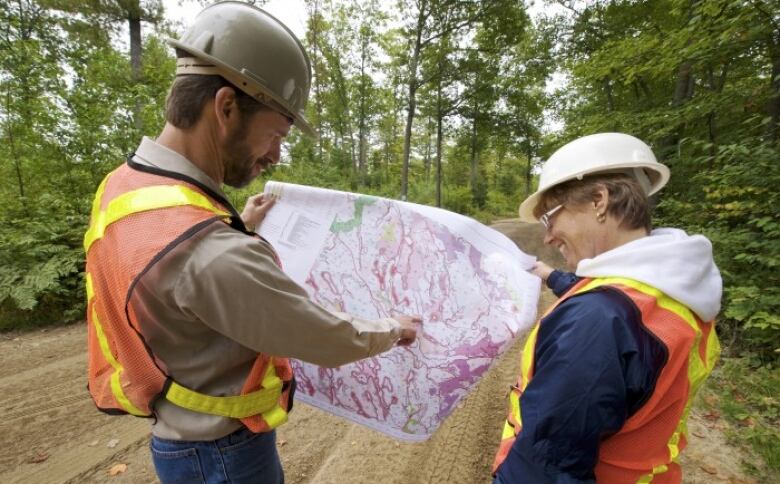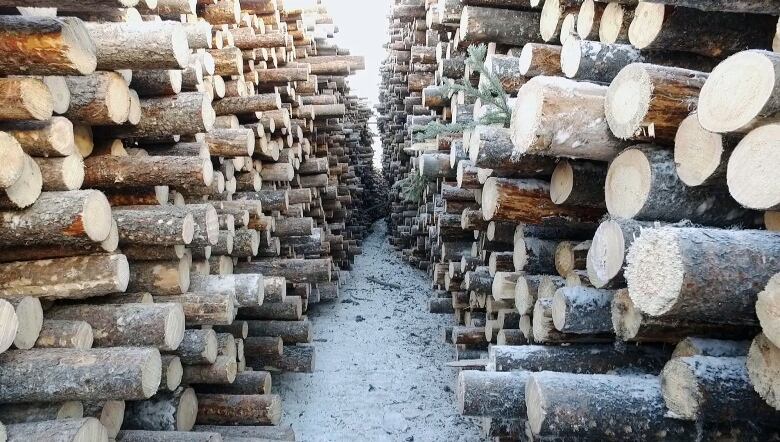Forest sector losing jobs but desperately needs more skilled workers
Despite mill shutdowns and increased raw log exports, there's 'more work than you can shake a stick at'

As steady streams of raw logs flow overseas,and hefty softwood lumber bills blockade the south,B.C.'s forest sectorcan look gloomy on the horizon.
Many have been quick to point the finger. During the provincial election campaign,NDP leader John Horganhas routinely blamedChristy Clark for the loss of 20,000 jobs, while the Liberal leader vows to protect the industryfromTrump's tariffs.

But some businesses arefacing the oppositeproblem: technicaljobs are going unfilled due to a shortage of skilled workers.
"We have more work than we can shake a stick at," saidJonathan Lok, managing partner at Strategic Natural Resource Consultants, aforest management firm.
And the shortage brought on by a confluence of retiring workers anddisinterested millennialscan mean less timber on the market.
- B.C. forests get $150 million boost to battle climate change
- Logging Lantzville: Small town fights to save local forest
Demand for technologists
Lok says there's a hot demand for forest technologists skilled workers whohelp develop environmental assessments, map out proposed cut blocks, and plan for harvesting and replanting.
But firms in rural areas often struggle to recruit workers entering the job market. When jobs go unfilled, it can keepcompanies from reaching their production targets, and reducethe overall timber supply.
Lok says current workers in these roles are retiring, while many others are swiftly moving on togovernment and managerial roles. And many new graduates simply don't want to work in rural B.C.
"The schools are full and many of them have waiting lists," he said.
"[But] once people graduate, havingfolkscome to terms with where the jobs are and what the jobs are doesn't necessarily always jive."
"There's a glaring hole that's left, not only in the business and the work profile, but in the community as well."

Smooth sailing, or tough times?
According to Steve Finn, head ofBCIT'sForest and Natural Areas Management program, forestry has gotten a bit of a 'bad rap' in recent years as not being a viable career option for millennials, which he says ispartly attributable to the demand for jobs.
"The industry has gone in cycles, andwe're definitely on a high with the number of opportunities," he said. "Things are smooth sailing from our perspective, regardless of what's happening with softwood lumber."
That's not to say that jobs haven'tbeen lost.Thousands of BritishColumbianshave been handed pink slips while sawmills and pulp and paper mills scramble for fibre.
- Bracing for looming lumber war, B.C. town cautiously hopeful
- Sawmill closure in Canal Flats, B.C., leaves 75 out of work
Mill closures have come todefine the modern legacy of the sector,andpoliticians have been quick to point the finger at raw log exports. According to a think-tankreport released earlier this year, some 3,000 workers could have been employed had B.C. processed the 6.3 million cubic metres of raw logs it exported in 2016.

Industry in transition
But according toJohnInnes, University of British Columbia'sdean of forestry, the job losses aren't the sign of a flailingindustry. Rather, they signal a transition.
"There are jobs being lost but a lot of that is due to technology," said Innes. "Mills are getting increasingly efficient and they are using automation, and a lot of that automation is replacing people."
On the other hand, Innesnoted20,000 new jobs are being forecasted, both to replace retiring workers and to fill new technical roles.
"Despite the issues that we're going to be facing in the coming months with softwood lumber, companies are declaring record profits," he said.
"Forestry is doing extremely well, and it will continue doing well. But there will be some casualties."
Follow Jon Hernandez on Twitter: @jonvhernandez












_(720p).jpg)


 OFFICIAL HD MUSIC VIDEO.jpg)
.jpg)



























































































